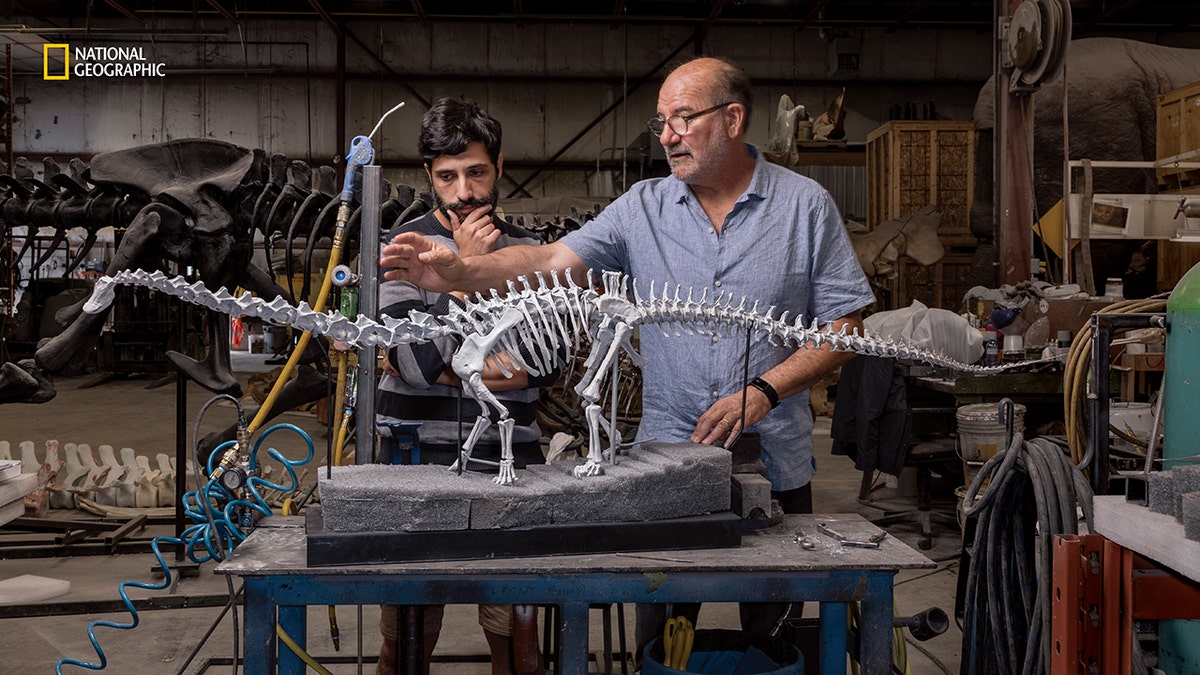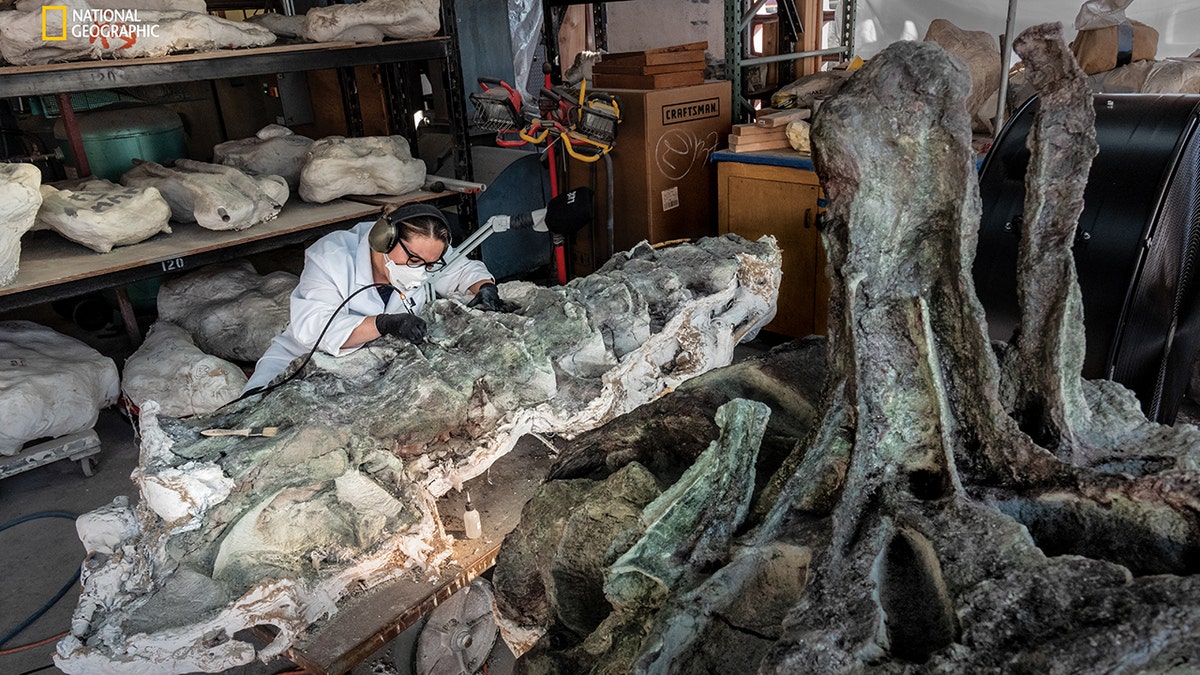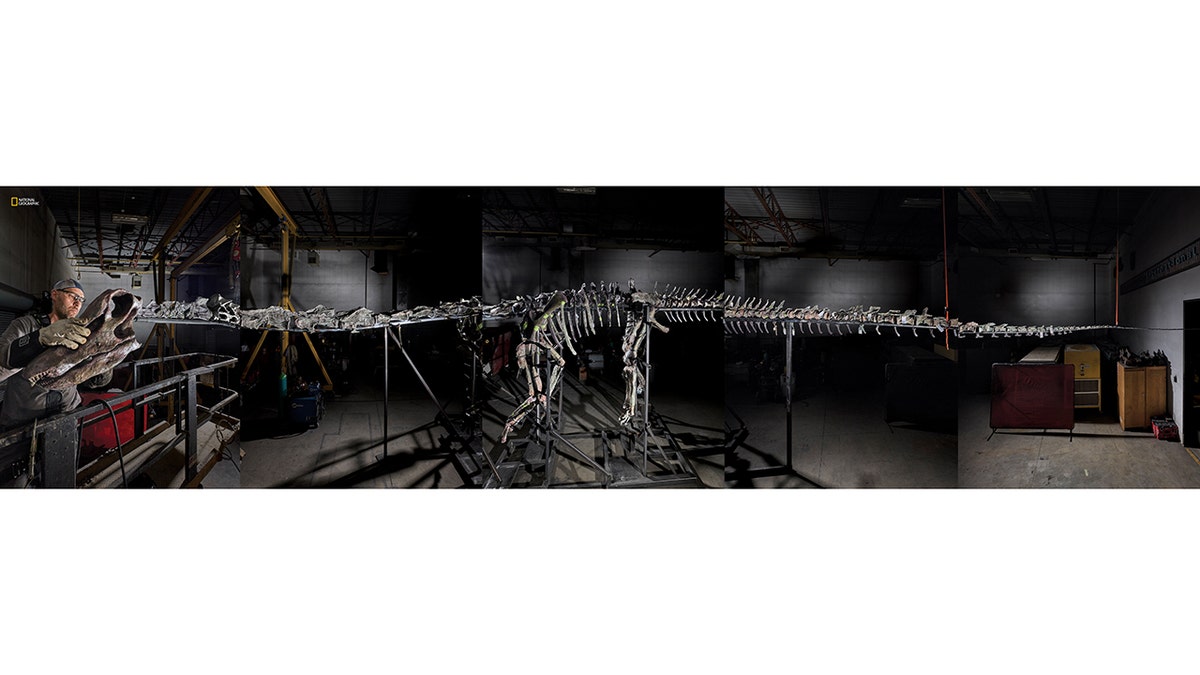Fox News Flash top headlines for August 30
Fox News Flash top headlines are here. Check out what's clicking on Foxnews.com.
A new dinosaur species has potentially been recovered after the reconstruction of its remains.
The first-of-its-kind green dinosaur fossil was discovered in southeastern Utah, and was reassembled by a team from the Natural History Museum of Los Angeles County (NHMLAC).
The 150-million-year-old dinosaur was first spotted in 2007, according to a report from National Geographic, among a "logjam" of various dinosaur bones belonging to diplodocus, stegosaurus, allosaurus, camarasaurus and other species.
DINOSAUR QUIZ! HOW MUCH DO YOU KNOW ABOUT THESE PREHISTORIC CREATURES?
The bones that were collected for reconstruction do not belong to one single dinosaur, NatGeo reported.
Instead, they're a combination of parts from two or more prehistoric reptiles of the same species found at the site.

Paleontologists Luis Chiappe, at right, and Pedro Mocho study a model of a diplodocus at Research Casting International, where real dinosaurs are reconstructed. (Craig Cutler/National Geographic)
The identity of this species has yet to be determined, as it may be new to science — but experts believe it belongs to the genus diplodocus due to its characteristic long neck and "four sturdy legs."
NEW DINOSAUR SPECIES SIMILAR TO T. REX FOUND IN ASIA
In the meantime, the dinosaur has been named "Gnatalie" by excavation team members, as there was an influx of gnats during that first summer at the dig site, NatGeo said.
For more Lifestyle articles, visit www.foxnews.com/lifestyle
From the site where the fossils were prepped, the bones were sent to Research Casting International (RCI) in Canada — one of the world's largest providers of museum technical services — for casting and mounting.
Gnatalie then made its way to its new display in Los Angeles.

At the museum’s lab in Los Angeles, preparators cut open the jackets and spent years removing the concrete-hard matrix. Here, preparator Erika Durazo reveals the details in a section of the dinosaur’s spine. (Craig Cutler/National Geographic)
The sauropod, a large herbivorous dinosaur known for its long neck and tail, is the most complete skeleton of its kind on the West Coast, according to NatGeo.
CLICK HERE TO SIGN UP FOR OUR LIFESTYLE NEWSLETTER
The dinosaur stands 75 feet long — almost twice the length of the average city bus — and weighs about five tons.
It's also the first green dino skeleton to be displayed worldwide.

The crowning moment comes as RCI technician Kevin Krudwig positions the skull on the nearly completed skeleton, which measures 75 feet long and weighs about five tons. In life, the dinosaur may have weighed two times as much. (Craig Cutler/National Geographic)
Its unusual green color occurred after volcanic activity from 80 to 50 million years ago made it hot enough for a new green mineral to change the color of the bones, NatGeo reported.
CLICK HERE TO GET THE FOX NEWS APP
In November, the multi-million-dollar reconstruction will be the star attraction of a new wing of the Natural History Museum of Los Angeles County.


